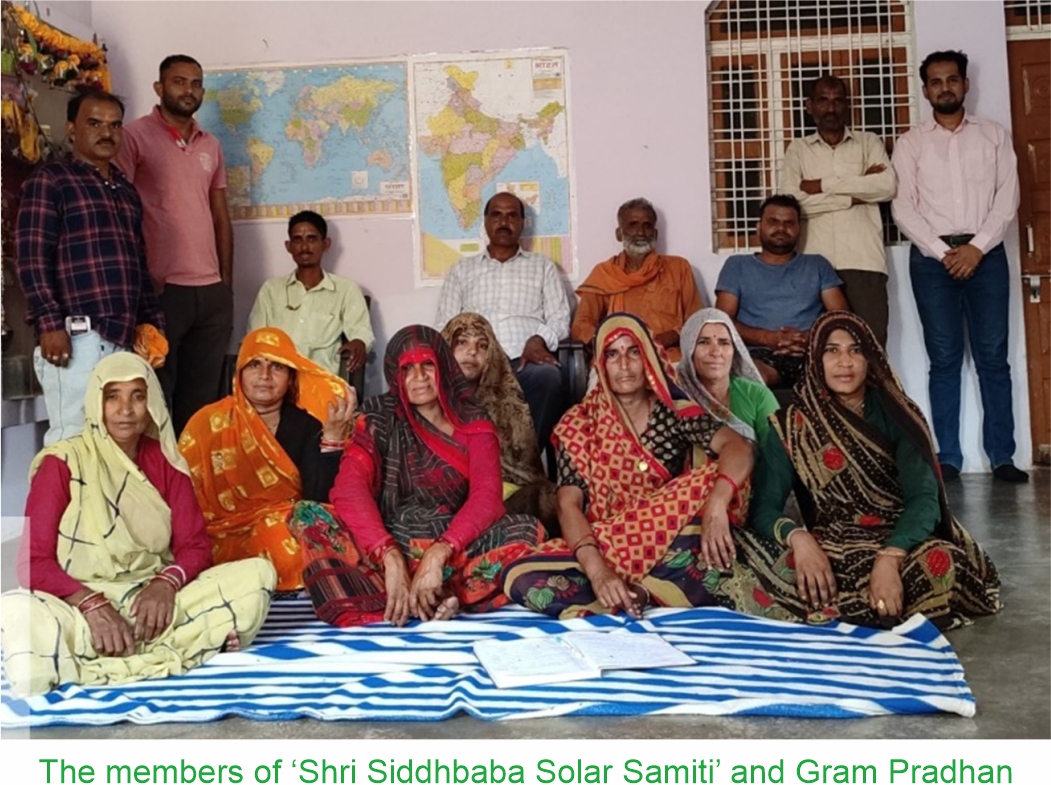Mitigating Crisis with
Green Tech: Bundelkhand Story
The
Bundelkhand region of India spreads across two states, Madhya Pradesh and
Uttar Pradesh, covering 14 districts, with 7 districts in each state. The
landscape is susceptible to drought, and receives intermittent and low
precipitation. Every day, millions of people in Bundelkhand struggle to make
ends meet and are forced to migrate to the cities during off-season in
search of better employment opportunities. Unsustainable land and water
management practices, the impact of climate change, erratic rainfall,
delayed monsoons, and frequent droughts create ecological problems in the
region.
Water Conservation: An
Important Issue in the Region
In the rural areas of Bundelkhand, water crisis is a prominent issue and the community faces challenges regarding water availability and accessibility, especially for women and children. Being a drought-prone arid region, rainfall is erratic and scarce. In such conditions, utilising and reusing water wherever possible becomes important. To fetch clean drinking water, women have to walk long distances, but as they cannot check the water quality, they often prey on the water with high TDS and contamination. This can cause chronic health issues related to the liver, kidneys and digestion.
Development Alternatives has been working on water conservation in the region by building structures that conserve water, such as check dams, tanks, ponds, gabions, and gully plugin. Over 294 check dams have been constructed, resulting in the regeneration of over 10,000 hectares of land and benefitting a quarter million people. Along with water conservation, Development Alternatives has also put in substantial efforts in the field of soil and land management, natural regeneration of forests, sustainable farming, skills and enterprises for livelihood security, and strengthening village institutions.
Setting Up of New Technologies for a Better Tomorrow
Currently, through the funding
provided by the Department of Science and Technology (DST), community-based
drinking water filters, wastewater treatment plants, and solar power-based
submersible pumps have been installed in the Madore East village of Niwari
district. These three technologies will also be implemented in five more
villages of Niwari district, for which preparatory work is going on.
The Development Alternativesí team initially conducted a baseline survey to
identify and understand the issues faced by the community and their
willingness to support the intervention sustainably in the long run. After
multiple interactions with the community members and Gram Pradhan, the
hotspot areas were identified where the interventions will be installed so
that maximum population can be benefited. With the support from Gram Pradhan,
community members were identified for the formation of a village samiti. The
samiti will be responsible for operating and maintaining the intervention
sustainably in the long run. The samiti of 12 members was formed and named
ĎShri Siddhbaba Solar Samitií. All the members agreed to contribute a fixed
amount monthly, which will be deposited in the samitiís bank account. The
committee has equal representation of women and it is expected that this
will boost their social status.
The farmers in the village depend on grid power for pumping water for irrigation. This cost is set to be Rs 3600 for each connection annually. It was decided that with the help of a solar-powered pump, the dependency on grid power can be reduced and the 12 farmers who have enrolled in the committee will be able to take advantage of the facility by utilising green energy instead of gird energy. This amounted to a reduction in cost by Rs 3600 per connection and potentially will reduce the cost by Rs 43,200 for the 12 members. As per plan, six solar panels will be set up near the well located between the farm fields. It will power a 2 HP 3-phase submersible pump that provides a flow rate of 150 lpm. The pump was tested at the TARAgram Orchha campus.
Managing wastewater in villages is important due to the lack of sewage treatment plants. The wastewater treatment ensures that the polluted water does not promote the breeding of mosquitoes, insects, and foul odour, which causes health issues such as malaria and typhoid. If left unchecked, untreated wastewater pollutes the groundwater, and the baseflow can also pollute the water in the nearby wells. During discussions with the Gram Pradhan and village community members, it was highlighted that the wastewater flowing through the open drains in the village converges to a spot that drains into the agricultural land daily, which affects the cultivation of the land. Looking at the ground scenario and the villagerís needs, it was decided that a wastewater treatment plant should be installed.
The plantís capacity is 2.5 KLD, and it will treat the wastewater to the extent that it can be utilised for irrigation and non-potable use. This treatment plant has been designed in collaboration with IIT Madras and the installation is being done by Raina Industries, Mumbai. The plant will be maintained by the villagers in the long run and the Gram Pradhan gave a written consent for this. The village community will utilise the treated water for irrigation purposes..
A Sustainable Future
The installation work has begun and will be completed before 30 June 2023. The community is happy with the development and is extending support in the ongoing interventions. Once the installation is complete, Development Alternatives will regularly monitor and strengthen the community to ensure the sustainability of interventions.
Aayush Saigal
asaigal@devalt.org